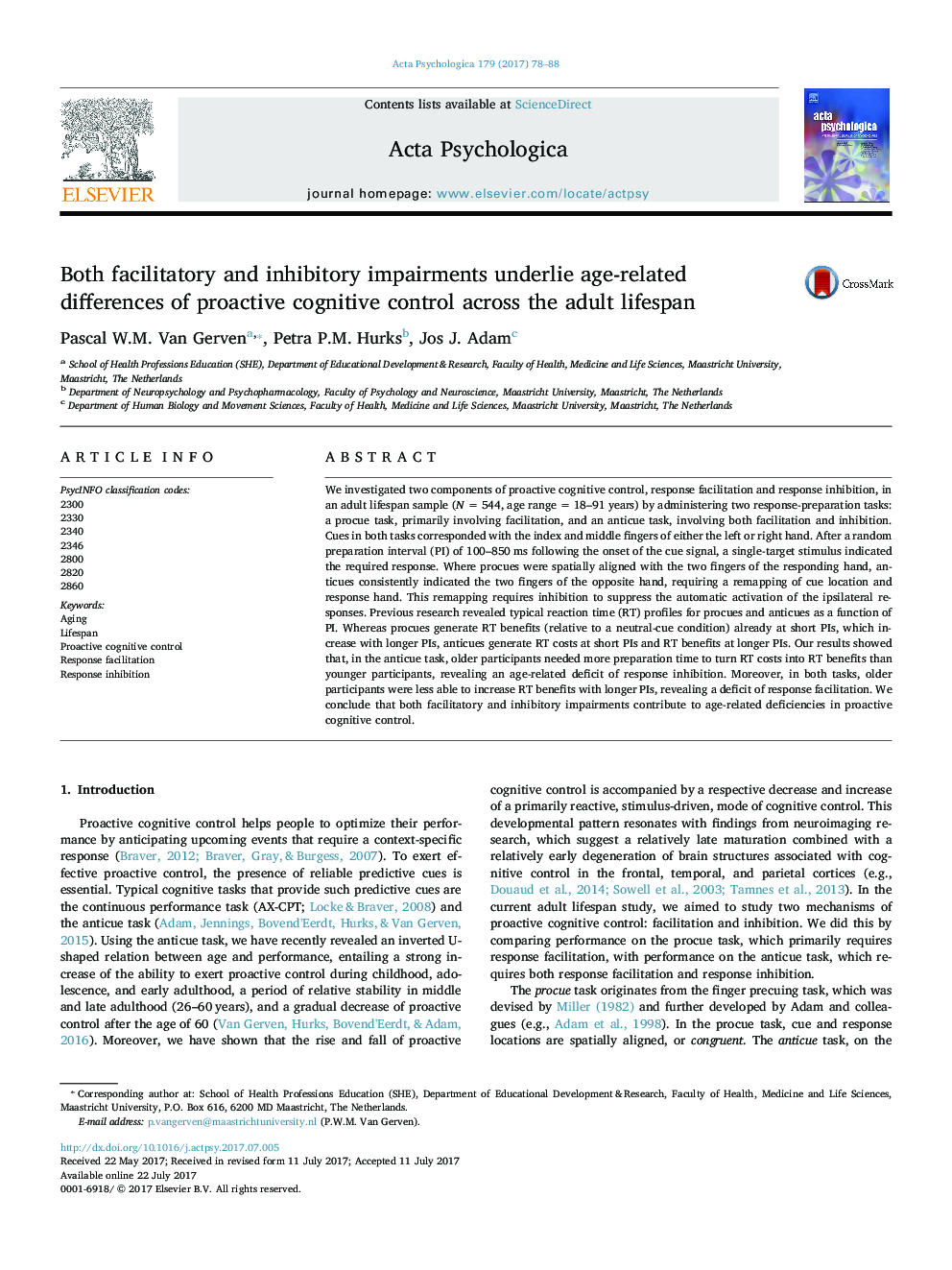| کد مقاله | کد نشریه | سال انتشار | مقاله انگلیسی | نسخه تمام متن |
|---|---|---|---|---|
| 5040225 | 1473579 | 2017 | 11 صفحه PDF | دانلود رایگان |
- Proactive control was studied in an adult lifespan sample (18-91Â years, NÂ =Â 544).
- The procue/anticue paradigm allows for separation of facilitation and inhibition.
- Impaired facilitation and inhibition underlie age differences of proactive control.
- Theories of proactive control should include inhibition, not only facilitation.
We investigated two components of proactive cognitive control, response facilitation and response inhibition, in an adult lifespan sample (N = 544, age range = 18-91 years) by administering two response-preparation tasks: a procue task, primarily involving facilitation, and an anticue task, involving both facilitation and inhibition. Cues in both tasks corresponded with the index and middle fingers of either the left or right hand. After a random preparation interval (PI) of 100-850 ms following the onset of the cue signal, a single-target stimulus indicated the required response. Where procues were spatially aligned with the two fingers of the responding hand, anticues consistently indicated the two fingers of the opposite hand, requiring a remapping of cue location and response hand. This remapping requires inhibition to suppress the automatic activation of the ipsilateral responses. Previous research revealed typical reaction time (RT) profiles for procues and anticues as a function of PI. Whereas procues generate RT benefits (relative to a neutral-cue condition) already at short PIs, which increase with longer PIs, anticues generate RT costs at short PIs and RT benefits at longer PIs. Our results showed that, in the anticue task, older participants needed more preparation time to turn RT costs into RT benefits than younger participants, revealing an age-related deficit of response inhibition. Moreover, in both tasks, older participants were less able to increase RT benefits with longer PIs, revealing a deficit of response facilitation. We conclude that both facilitatory and inhibitory impairments contribute to age-related deficiencies in proactive cognitive control.
Journal: Acta Psychologica - Volume 179, September 2017, Pages 78-88
